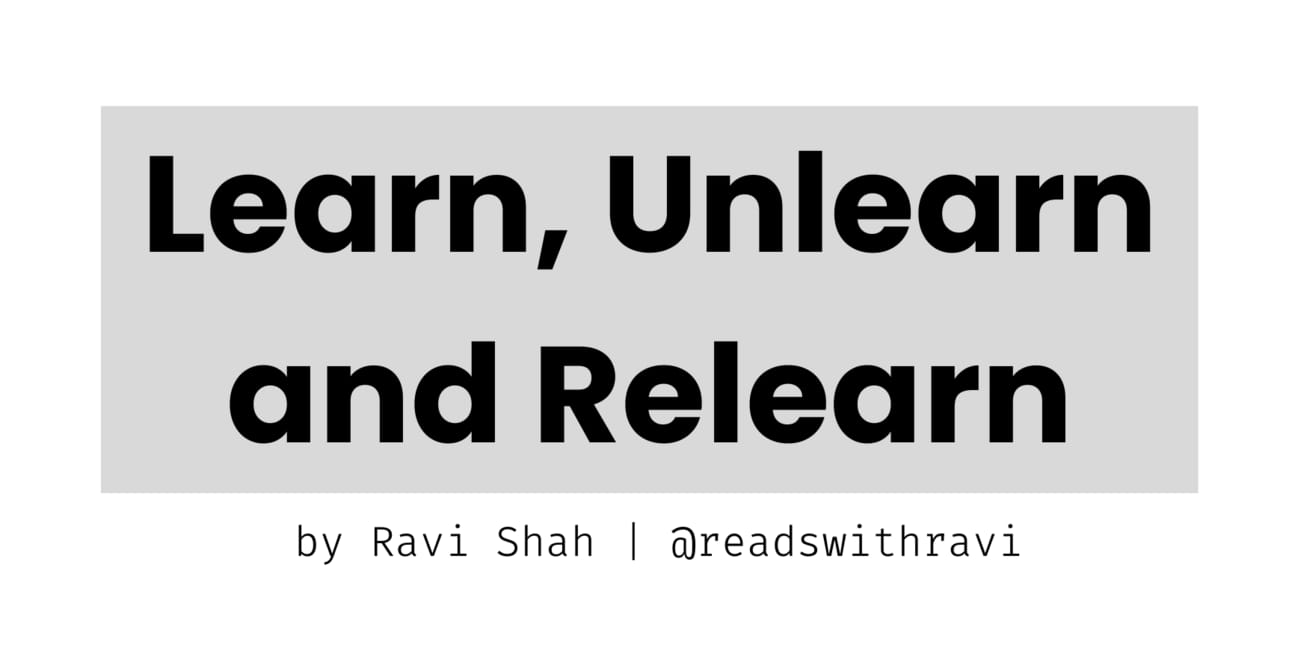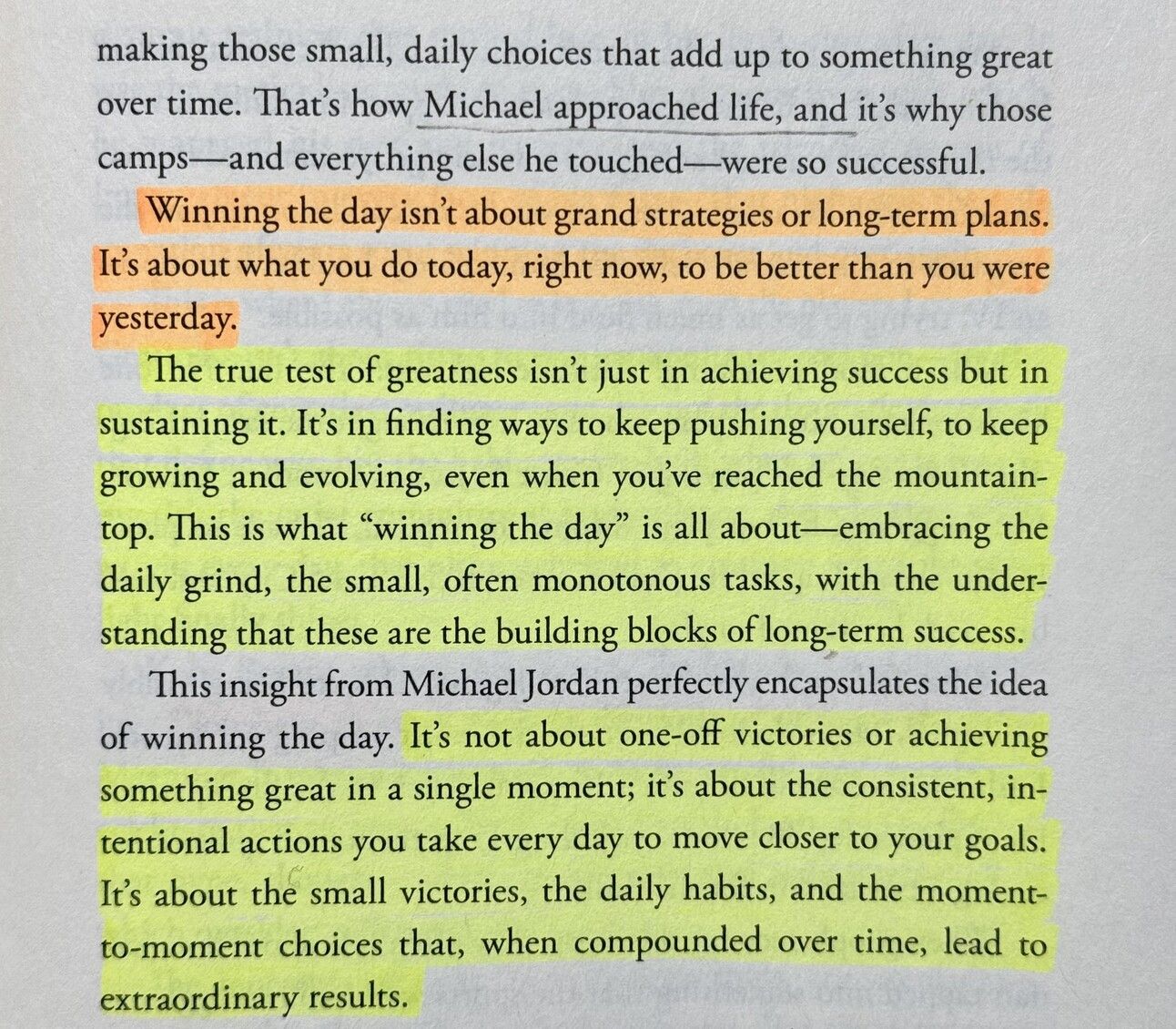
The Daily Newsletter for Intellectually Curious Readers
shared.image.missing_image
Join over 4 million Americans who start their day with 1440 – your daily digest for unbiased, fact-centric news. From politics to sports, we cover it all by analyzing over 100 sources. Our concise, 5-minute read lands in your inbox each morning at no cost. Experience news without the noise; let 1440 help you make up your own mind. Sign up now and invite your friends and family to be part of the informed.
Happy Thursday folks!
Here is my favorite passage of the week, two quotes and book of the week with two important lessons to ponder on:
Passage of the Week:
American basketball player and coach George Raveling on winning the day:

From What You’re Made For by George Raveling and Ryan Holiday
Two Quotes:
“To inspire people, don’t show them your superpowers. Show them theirs.”
“Within you, there is a stillness and sanctuary to which you can retreat at any time and be yourself.”
Book of the Week with 2 Important Lessons:
The book of the week is Scarcity Brain: Fix Your Craving Mindset and Rewire Your Habits to Thrive with Enough by Michael Easter.

This book reveals the biological and evolutionary foundations behind our brain’s fixations so that we can recognize the trap and embark on journey of living more satisfying, healthier and meaningful on the long run for the years to come.
If you loved The Comfort Crisis by Michael, you will definitely love this one as well.
Here are two important lessons from the book:
1) Scarcity Loop:
The behavior we do in rapid succession – from gambling to overeating to overbuying to mindless scrolling to binge-watching and so much more are powered by a “scarcity loop.”
This loop is the ultimate trigger of the scarcity mindset, and it has three parts:
Opportunity —> Unpredictable Rewards —> Quick Repeatability
The first part of the scarcity loop is opportunity. An opportunity to get something of value that improves our life.
The second phase of the scarcity loop is unpredictable rewards. Our brain hone in on unpredictability. If we know we’ll receive a reward but aren’t sure when, we get sucked in. We experience a sort of exciting, suspenseful anxiety as we wait to see whether this occasion will deliver the good stuff.
The third phase of the scarcity loop is quick repeatability. Research shows the faster we can repeat a behavior, the more likely we are to repeat.
Here's how it breaks down if we take slot machines as an example:
The chance to win big money by simply pressing a button (Opportunity);
We never know if the next spin will pay off with a jackpot or nothing at all. This uncertainty mimics the survival-driven thrill keeping us hooked as we chase the possibility of a win (Unpredictable Rewards);
We spin again instantly with no delay between attempts. This fast pace locks us into a cycle, making us hard to walk away, as each spin fuels the hope of hitting it big (Quick Repeatability).
2) Knowledge and Understanding:
There’s a difference between knowledge and understanding. Knowledge is possessing facts. Understanding is different.
When we understand something, we not only possess a lot of independent facts, but we see how those facts connect. We possess some internal model or account of it which we can use to make predictions, conduct further investigations, and categorize new phenomena.
Understanding is most likely to land when we work a bit harder to get our knowledge straight from the source. This requires more effort and deeper exploration. A willingness to go there, pick up the phone, or at least read a primary source, like a study.
Books – I am currently reading:
What You're Made For: Powerful Life Lessons from My Career in Sports by George Raveling and Ryan Holiday. In this book, Coach Raveling imparts lessons learned from his grandmother, his long career in basketball, and his lifelong habit of reading—to which he credits all his success.
How Not To Invest: The Ideas, Numbers, and Behaviors That Destroy Wealth - and How To Avoid Them by Barry Ritholtz. This book lays out the most common errors investors make. It shows you a few simple tools and models to help you make fewer of them, and to have the mistakes you do make be less expensive.
READING TIP: Read actively — Take Notes, Highlight
Reading actively means taking notes or highlighting the important insights or creating an action plan out of your reading to apply to your daily life.
Writing helps you remember, and these highlights can also be the source for your next read.
Thank you for reading and all your support.
I am excited to keep bringing you the new and old books, great insights, and lessons.
Until next week, stay curious and happy reading!
— Ravi Shah | @readswithravi


